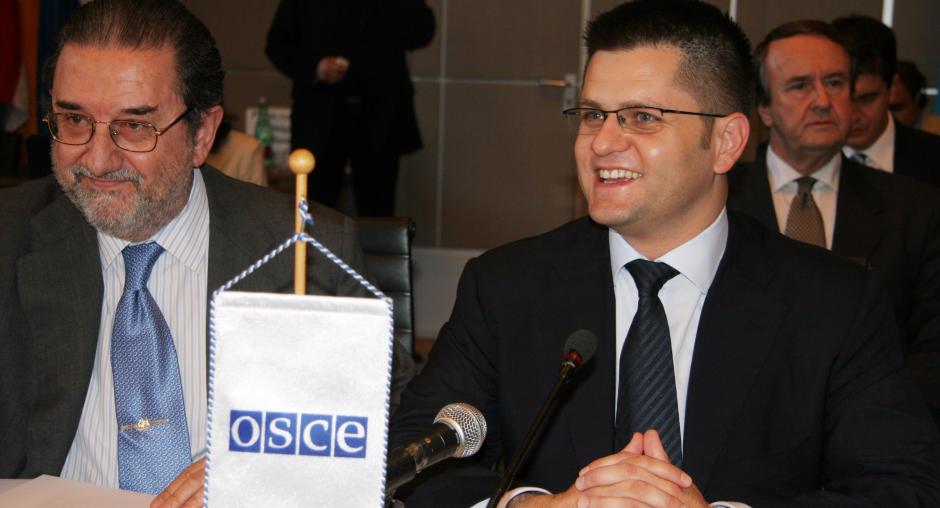Rapid EU accession priority for Serbia, Foreign Minister tells OSCE

VIENNA, 17 July 2007 - Serbian Foreign Minister Vuk Jeremic told the OSCE today his country's main priority is to join the European Union swiftly.
"Let me be absolutely clear: rapid EU accession is the Government of Serbia's fundamental priority," he told the OSCE Permanent Council, the 56-country Organization's main, regular decision-making body. "And I believe that this is the case with every other national government in the region. We are committed to co-operate with each other because we understand that we are all in this boat together."
He noted that the work of the OSCE had helped Serbia progress and expressed hope that the successful co-operation would continue in the years to come.
"The Government of Serbia highly appreciates the contribution of the OSCE to the ongoing process of reform and democratization in our country, particularly when it comes to police and judicial reform, rule of law consolidation efforts, defense reform and media-related issues," he said. "As such, we greatly value the work of the OSCE's Missions in Belgrade and Pristina."
Speaking about co-operation with the International Criminal Tribunal for the former Yugoslavia, Minister Jeremic said: "All indictees still at-large must be located, they all must be arrested, and they all must be handed over to The Hague."
He noted good regional co-operation on this and other efforts. "All the governments in the region are truly eager to consolidate the European idea of democracy, the institutions that flow from it, the co-operation they entail, and the values that are its foundation."
Minister Jeremic also discussed Kosovo, arguing that there was no credible alternative to a mutually-acceptable solution to Kosovo's future status.
"I believe that the way forward lies in coming together in an atmosphere of true European brotherhood, reconciliation, flexibility and compromise," he said, asking for OSCE support and closer co-operation and co-ordination between the Organization's Missions in Belgrade and Pristina.
"The OSCE has a role to play in the new negotiations," he said. "The only way forward is to begin - to begin in earnest - a negotiating process that has no pre-determined outcome, a negotiation process on the future status of Kosovo that gives dialogue and reconciliation pride of place.
"The alternative approach, namely one that imposes the independence of Kosovo against the will of the democratic leadership of Serbia, and that does so without being sanctioned by the United Nations, cannot be allowed to stand. The imposed independence of Kosovo is nothing other than the forced partition of Serbia. That is why imposing independence would directly affect a fundamental tenet of the OSCE and the international system - not just the Western Balkans."
